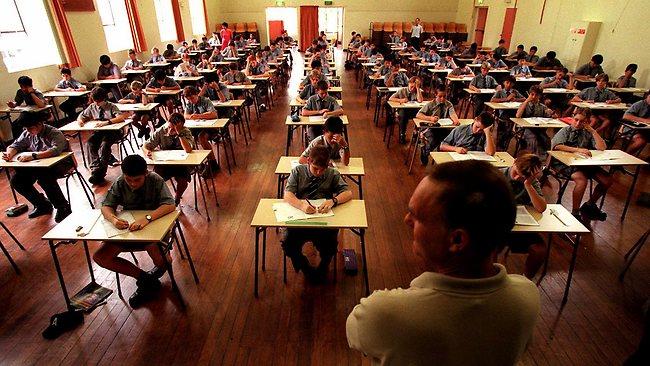A decade of lost action on literacy
LITERACY researchers slammed as "a national disgrace" almost a decade of government inaction on the poor teaching of reading.

THE eminent literacy researchers who prompted a national inquiry into the poor teaching of reading yesterday wrote to federal and state governments deploring almost a decade without action as "a national disgrace".
In an open letter to federal, state and territory education ministers and their opposition counterparts, the group of 36 educators, scientists and clinicians call for a "vast shake-up at all levels of teacher training" to ensure children are taught to read properly.
The letter was prompted by the results in the international Progress In Reading Literacy Study tests last week that revealed almost 25 per cent of Year 4 children in Australia failed to meet the standard in reading for their age, to the shock of many educators and governments.
Reprising the letter they sent to then education minister Brendan Nelson in 2004 that resulted in the independent inquiry, the researchers admonish governments for their collective failure to heed the evidence and advice for almost a decade on the most effective way to teach reading.
"We have significant problems in education from the beginning stages, in that we do not teach reading well," the letter says.
"We do not use approaches known to be effective in initial reading instruction. As a nation, we do not routinely screen students entering school for underdeveloped pre-reading skills critical for facilitating learning to read, nor do we monitor student progress ... in a manner that allows for successful early intervention with students failing to progress.
"We do not redress our early system failure during the middle primary years. In the secondary years, we have a significant group of disillusioned students who have lost contact with the curriculum because of these earlier issues. We tend to focus attention and resources upon compensatory educational options instead of emphasising the resolution of our earlier mistakes.
"The sequence of initial failure-shame-frustration-disengagement-dropout is predictable and ongoing. Currently, it is being addressed piecemeal, as if they were separate problems."
One of the organisers of the letter, emeritus professor Max Coltheart, said while international tests indicated Australia was slipping in its standard of literacy skills compared with other nations, the PIRLS results were worse than expected.
"This is something we could have predicted 10 years ago," Professor Coltheart said. "The first letter we wrote in March 2004 warned there was going to be a problem and it turned out to be even worse than we thought.
"It will take several years to change the training of teachers so they know something about reading. If we started in 2005 when the national inquiry into the teaching of reading reported, then we would have had an effect by now."
The first letter in 2004, which was first published in The Australian, was signed by 26 researchers and practitioners and warned of problems in the way reading was taught in schools, which continued to ascribe to the "whole language" view that learning to read was like learning to speak and children would pick it up if they were read to. The 2004 letter said this view ignored 20-30 years of reading research, which found that mastering the letter-sound combinations and how to join sounds to make words were the necessary early steps in learning to read.
The inquiry, chaired by the late expert on teaching and learning Ken Rowe, found that teachers were not properly trained in how to teach reading, with many universities failing to devote any time to the subject.
The Rowe report made 20 recommendations, none of which was implemented. A subsequent inquiry in 2009 by the dyslexia working party made similar recommendations about teacher education, but these have not been introduced either.
"Federal governments have known about this problem for nearly a decade, and have received advice from two independent committees of investigation about how to deal with the problem," yesterday's letter says. "This advice has been ignored. Little productive change has eventuated at the policy level, much less at the classroom level.
"Indeed, if the recommendations of the NITL (National Inquiry into the Teaching of Literacy) were adopted, wholesale retraining of teachers would be necessary to provide them with the understanding of literacy not presented to them in their own teacher training. We need a vast shake-up at all levels of teacher training. We ... urge your immediate attention to what has become a national disgrace."
School Education Minister Peter Garrett said the government had introduced national accreditation for teaching degrees, which included restricting teaching students to the top 30 per cent and that the teaching of reading was based on evidence of what works.
"Given there are a number of different programs in place across the country, I would be happy to sit down with other education ministers ... and share ideas on what is already working to lift performance and extend our top performing students," Mr Garrett said.
He said that since the PIRLS tests were held, the national curriculum had started to be taught in schools, which included phonics in teaching reading.
Dr Nelson, now the director of the Australian War Memorial, told The Weekend Australian he was moved from the education to the defence portfolio in January 2006, soon after receiving the reading report. "Had I remained in education, my single preoccupation in 2006 was going to be teacher education," he said.
Dr Nelson said anybody with more than a passing interest in teaching reading would regret that governments on both sides of politics had failed to implement the Rowe report.



